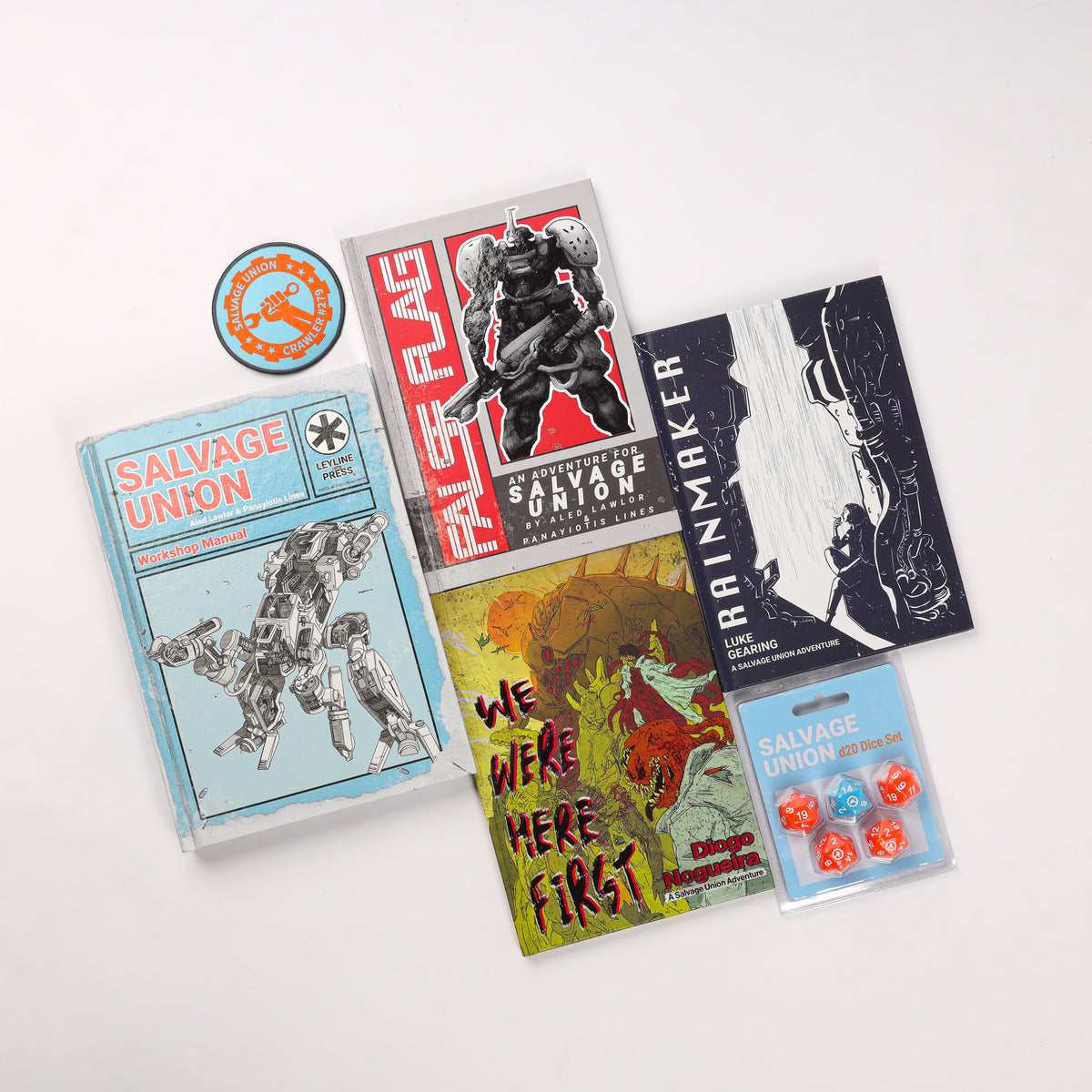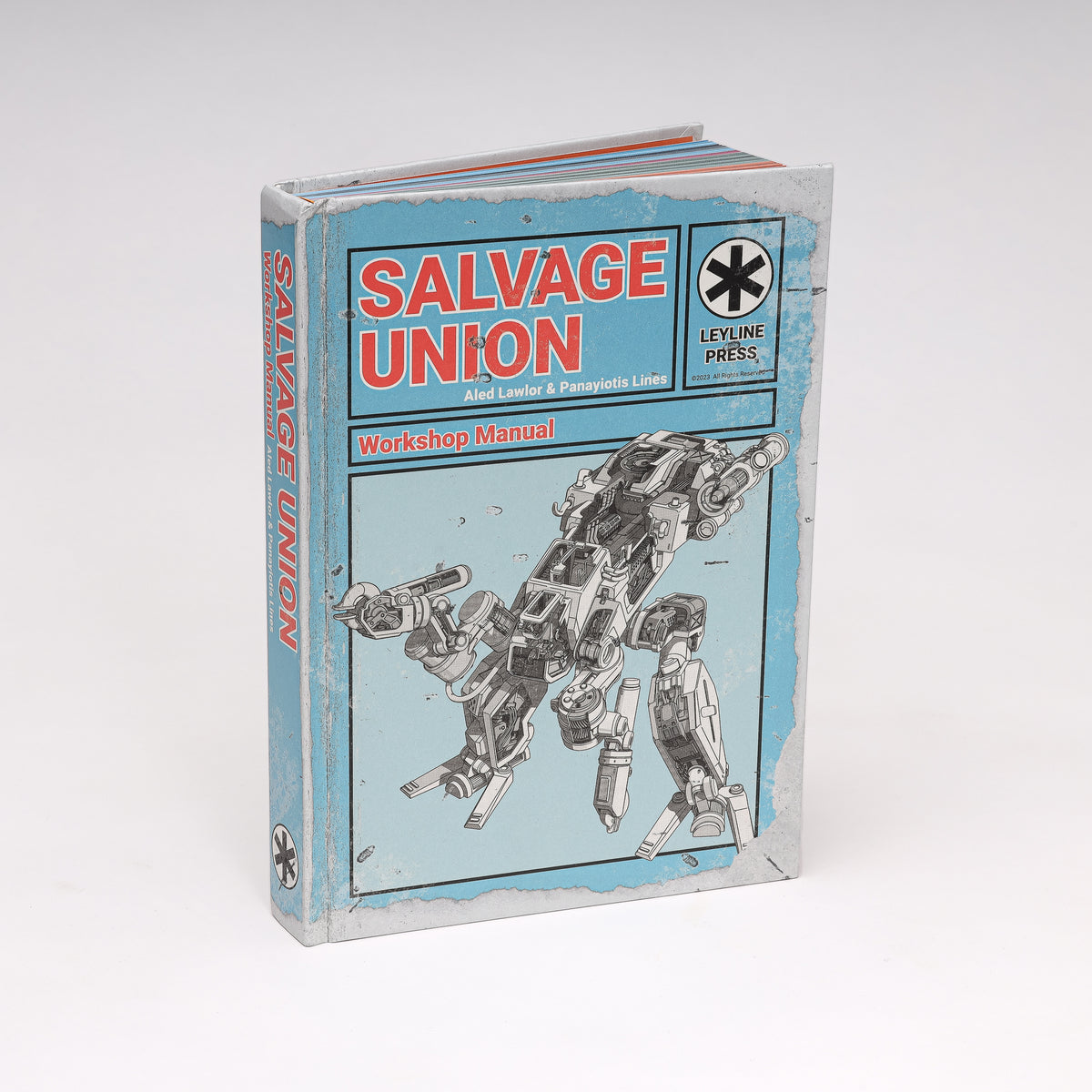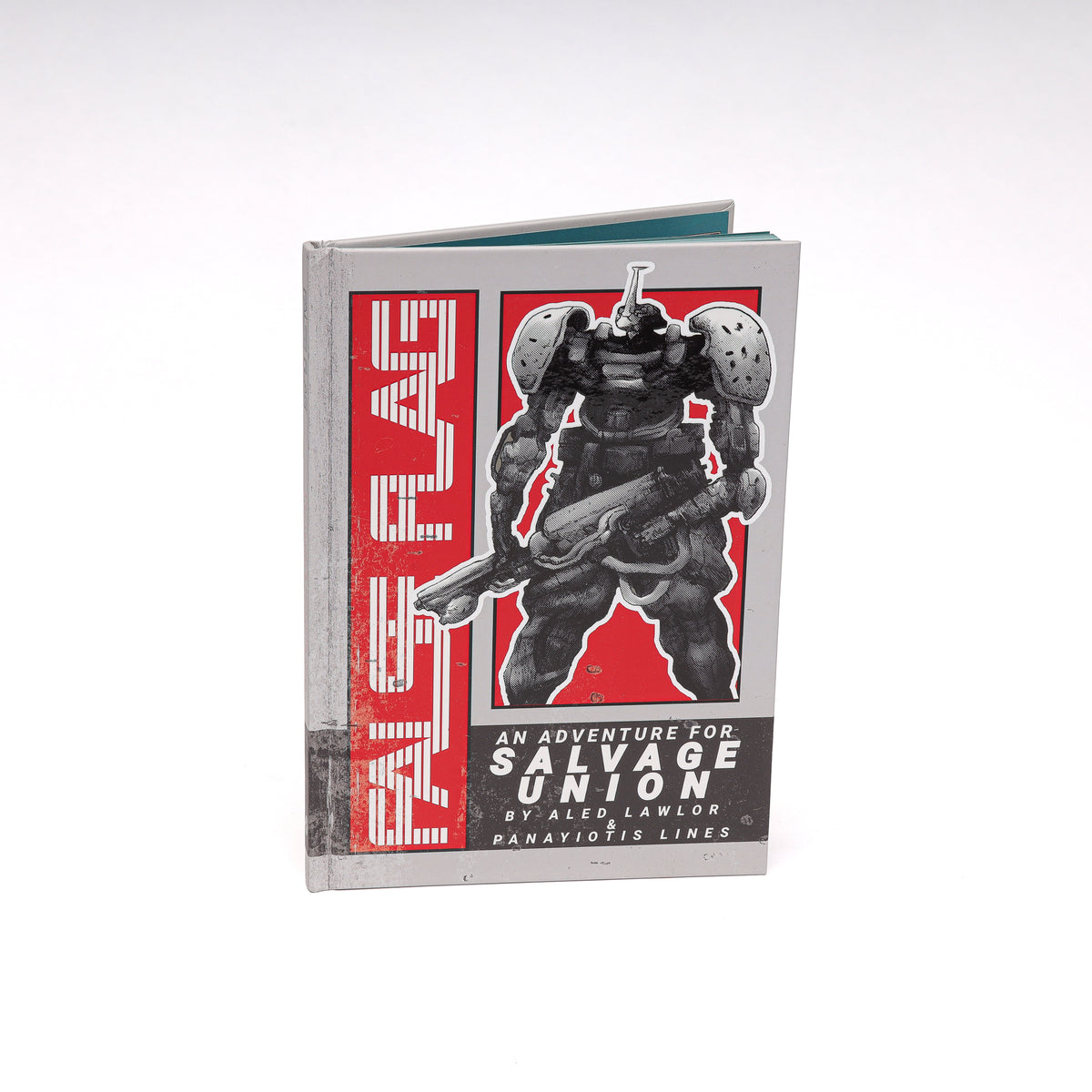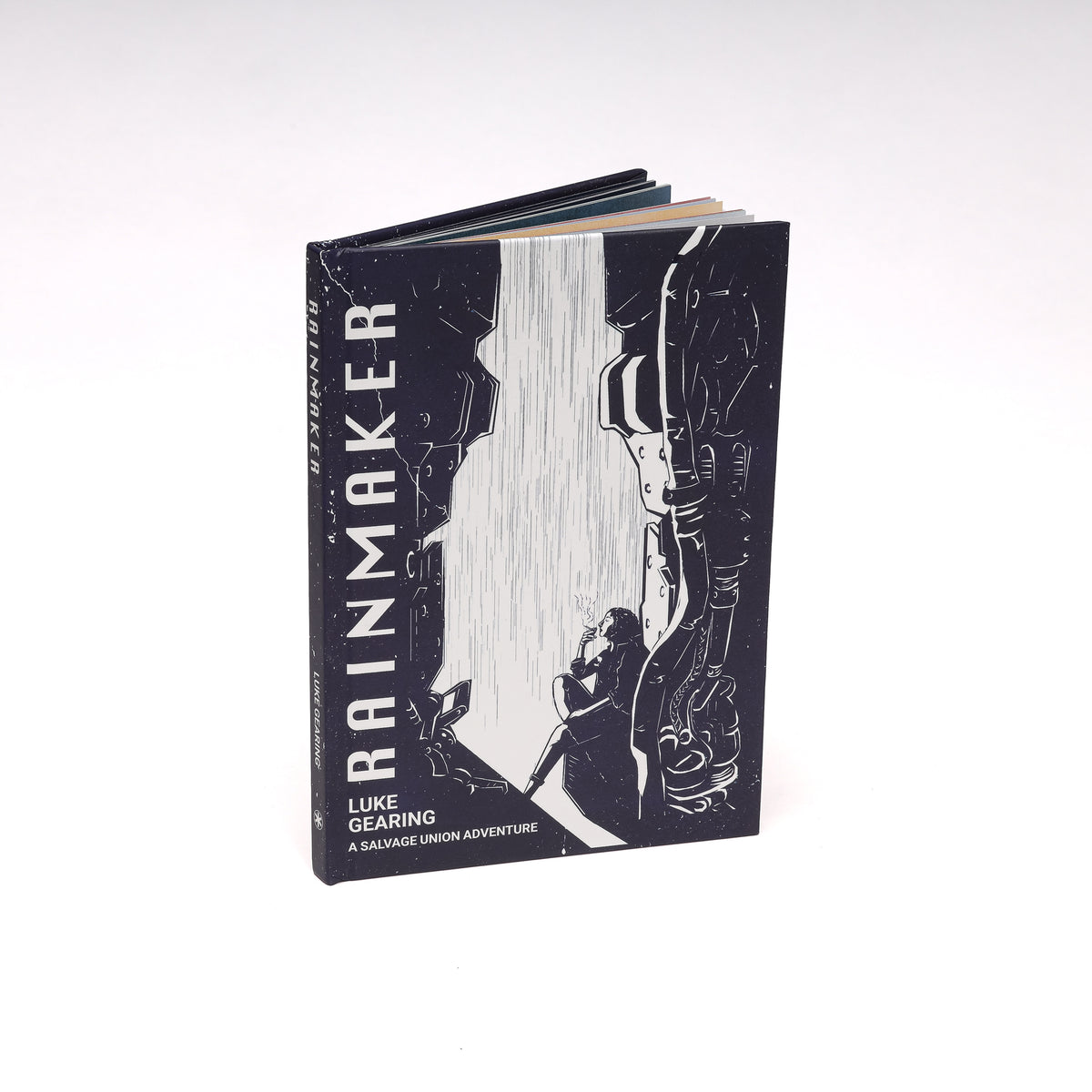
In this series of blogs we're exploring the various OSR RPG systems out there and how they compare to one another and the original D&D rules. This week we're taking a look at Basic Fantasy by Chris Gonnerman.
Basic Fantasy was conceived around 2006 as an 'old school' retroclone harkening back to the early days of Dungeons & Dragons and released on the Open Gaming License. This makes it one of the earlier retroclones to be released alongside titles such as Labyrinth Lord designed in the same era.
The intent of Basic Fantasy is to create an updated, easily accessible and comprehensible fantasy roleplaying rules set that stays as true to the. It uses the Basic & Expert line as a basis but borrows elements from other early editions of the game to flesh out that rules set or make elements run more smoothly.
In terms of core content it includes a comprehensive rules set that covers character creation, spells, dungeon and wilderness exploration, weapons and equipment, retainers, lists of monsters and treasure as well as the key dice and play mechanics tying all of this together. Basically everything you need to run and play a game or even campaign. This is all presented in a single, A4 volume that's available to download for free as a PDF or that you can purchase directly at cost for around $5.

Basic Fantasy, in a similar way to Swords and Wizardry, doesn't attempt to accurately recreate the original rules in the way that Old School Essentials set out to do. Instead it takes those core rules and recreates them in its own image though does so whilst keeping close to both the original letter and spirit of the rules. It doesn't try to reinvent the formula set down by Basic D&D, like say Mork Borg does, but it does make a few changes, many of which most players probably wouldn't even notice unless they were looking closely and others which are so familiar to players.
For example Basic Fantasy splits race and class during character creation, rather than race as class as in B/X D&D. This is one of the more 'significant' changes to the B/X rules set but a common one and indeed one that already existed in Advanced Dungeons & Dragons. This means at character creation you pick a race from the choice of an Elf, Dwarf, Halfling and Human all of which have their own unique features and abilities. You then choose a class to define what your character can do from a choice of Fighter, Thief, Cleric and Magic-User. There are only 4 choices of each in core Basic Fantasy which sticks to those found in B/X D&D.
There’s some restrictions here too such as Halflings not being able to become Magic Users and Dwarves not being able to have Charisma scores higher than 17.

The race/class split is a popular rule that exists in D&D 5e to this day and its inclusion is a common one within many retroclones, with even Old School Essentials including it as an optional rule in their advanced supplement despite their effort to keep their rules as close to B/X as possible.
The character you pick is defined by the classic six spread of stats (Strength, Dexterity, Constitution, Intelligence, Wisdom, Charisma.) These are generated randomly by rolling 3d6 and assigning them in order as you roll. These use the same bonus/penalty spread as found in B/X D&D.

What these stats do has stayed broadly the same. Charisma affects Retainer numbers, Intelligence gives additional languages, Wisdom gives a bonus to saves against magic, Strength is for hitting stuff in melee and so forth. Prime Requisites still exist, providing an XP bonus to certain classes who have their prime requisite stat. These are much the same too with Fighter's getting Strength and Magic Users getting Intelligence and so on.
Similar to the roll under mechanic found in B/X there's a generic ability roll mechanic that uses these core stats included in Basic Fantasy as an optional rule. This one is quite different to many and uses a d20 roll compared to the results of a table that improves based on the level of your character. This gives higher level characters more chance of success even if their stats are the same and in a strange way is similar to the proficiency bonus mechanic in 5E D&D.

Another popular rule included in Basic Fantasy is ascending rather than descending AC value. There's no mention of THAC0 or anything close within the rules set and all attacks are done by rolling a d20, adding the appropriate modifier and comparing it to the targets.
Hit point values have stayed much the same too Fighters get D8, Clerics d6 and Thieves/Magic Users d4. When a character reaches 0 HP they die however optional rules exist for death. These use a common house rule that when a character reaches -10 hp they die but they are unconscious when in negative until then and can be healed and stabilised back to life.
There's also an optional rule to make poisons less deadly by them dealing damage per round rather than being straight save or die. Old School Essentials is another retroclone that includes optional poison rules too to flesh out what different poisons can do and manage their potentially life ending threat.

Poison is topic that a lot of retroclones end up adding rules for as they're a tricky thing to design within the D&D framework. Within Basic D&D many poison effects are simply save or die. This mirrors the deadliness we intuitively understand about poison however in game terms it can feel too harsh to have a character, even a high level one, die from one attack from a Pit Viper. This is further exacerbated when players start to ask how they can harvest the save or die poison from the Pit Viper that nearly killed them and use it against their opponents which can start to break the game down and turn every interaction into save or die. However weakening the effects of poison can make them feel mundane or ineffective considering poison should be a scary thing. Basic Fantasy attempts a compromise between the two though ultimately it's still something left to the Game Master to adjudicate.

The spell system in Basic Fantasy uses the classic Vancian model and the core spells have stayed mostly the same as in Basic D&D albeit with some updated wording and formatting.
Basic Fantasy includes some really useful quality of life improvements to the original game in terms of presentation, description and the rules in of themselves.
For example the equipment table provides a clear delineation between small, medium and large items and some logical differences between picking them. Swords, axes and hammers are all split into small, medium and large variants. Such as a hand axe, battle axe and great axe or a short sword, longsword and two-handed sword. The larger weapons deal more damage, but certain races and classes are restricted to using smaller ones. This may seem obvious but in contrast within Basic & Expert a battle axe has the slow property, meaning it always strikes last, but does the same d8 damage as a Sword. This means there's little reason to take a battle axe.
Each of the items in the adventuring gear section has an excellently written description explaining what the item is and the various things that you can do with it. This specifically includes what the likes of a piton, rope, oil, chalk and a mirror are and what you can use them for. This might at first seem obvious but it's not actually that intuitive for a new player to realise a piton can be used to wedge a door open and stop it from closing or that a mirror can be used to peek around the corner of a dungeon. One of the key elements of old school play is finding creative ways to use your equipment and these explanations go a great deal in making a first time player realise the wide utility that equipment serves within the game and further serves as a springboard for other creative ideas within that space.

Character's advance via experience points.. Experience to level remains mostly the same with some miniscule adjustments such as the Thief levelling at 1250 XP instead of 1200 as in B/X. Gold is provided as an optional means to get experience with 1 gold coin equalling 1 XP shared amongst the party. Experience for defeating monsters is seen as the core method of XP and the numbers have a fairly large boost in Basic Fantasy as a result. For example a HD 5 Lion provides 360 XP. In B/X a Lion only provides 175 XP. The low amount of monster XP in theory is meant to encourage player characters to avoid fights but a boost does at least give you something for defeating a particularly tough monster.
There’s additional content to expand the core rules available. This includes additional monsters as well as classes like the Bard and Druid and a full online SRD to quickly look up information.

There’s also a slew of dungeon and adventure content which is equally cheap to pick up and inspired by classic modules of old, such as ‘The Chaotic Caves’ based on the Caves of Chaos and’ Monkey Isle’ loosely based on Isle of Dredd. As with many retroclones the game is pretty much fully compatible with any old school D&D module you pull off of the shelf as well, whether a classic TSR one or a modern one designed for retroclones.
Overall Basic Fantasy is an incredibly well designed retroclone that and is available entirely for free, with the book itself in bold letters stating not to purchase it. It's built up a big community around it as a result who are still actively creating adventures and optional rules and can be found discussing things within the games forum.
Reader Updates
Some of our readers have pointed out some other differences in Basic Fantasy worthy of note.
There's no alignment system mentioned in the game and there's no level caps. This makes the game a versatile and free one to play with players not restricted by alignment or level caps. Alignment is often a rule that's either ignored, minimised or houseruled out of systems due to issues that can arise with it in game. Basic Fantasy also updates spells like 'Detect Evil' and leaves them effectively to GM fiat to decide rather than tying them to a specific alignment ruling. Likewise if a group wants to play beyond a level cap they'll tend to just do so, so it makes sense to remove these elements within a retroclone.
Thanks to the readers for pointing those out!

Thanks for reading! If you're interested in a trio of old school fantasy adventures check out Albion Tales.
Subscribe to the Leyline Press newsletter here to receive updates on our blogs, promotions, games and more.
Follow us on twitter @leylinepress
Follow us on facebook @leylinepress
Follow us on instagram @leylinepress
Follow us on tiktok @leylinepress
Subscribe to this blogs RSS feed by pasting this into your feed reader - https://leyline.press/blogs/leyline-press-blog.atom






6 comments
Basic Fantasy is one of the most playable RPG systems available today, and you can’t beat the price. Chris Gonnerman has really distilled the essence of Old School gaming and removed the counter-intuitive parts, such as descending AC.
There are plenty of optional rules supplements available online for those who want them, including additional classes and combat options. I’m sure there is one that covers gold for XP for those who want that. It’s also easy to contribute to the rules. I added in an improved thief class myself (the Rogue) and one of the core book’s artists stepped in to add an illustration to it!
I like to combine BFRPG with other Old School materials like the Tome of Horrors books from Swords and Wizardry and adventures like Barrowmaze and some of the OSE modules. There’s really no conversion involved, it’s plug and play.
Hmm, I always heard good things about Basic Fantasy, but I am really surprised at the boost to XP from monsters, and an optional XP for gold.
The way I understood it, XP for gold was a HUGE part of old school games, that encouraged Players to avoid fights when possible, to get at the treasure rich lairs! This was an abstraction that helped push the players toward the games focus of exploration, and problem solving through creative thinking, with a lesser focus on combat. I thought that removing XP for gold and focusing on XP for killing monsters is what lead to Pathfinder and 5E’s focus on combat.
(I know that Pathfinder and 5e are not exclusively about combat, but they are certainly more focused on it than most old school games. )
On the other hand, I suppose it would be pretty simple to use that optional XP for gold rule, and then house rule that monsters give a small fraction of the XP they have listed, like 1/4 or 1/10 as much, and achieve the exact same affect, but the GM would need to be experienced and knowledgeable enough to know to do that….
Roll under stats is an heresy. None of the original D&Ds (Whitebox and AD&D1) used such rule, for the same reason there is no skill.
The default Experience Points rule in Basic Fantasy says that gold does NOT = XP. You only get XP for killing monsters (“and for other challenges as the GM sees fit”). XP for gold is presented as an optional rule later in the book, but it is not the default rule in Basic Fantasy.
This is my go-to system for first time rpg players and kids. It’s easy to learn without including a bunch of stuff that won’t translate when they shift to more modern style games. And of course it’s all free making it the perfect entry level rpg. Not sure if you’ll enjoy playing a ttrpg? With this game you’ve literally got nothing to lose by trying.
Nice article. I was surprised though that there was not a mention of Tunnels and Trolls! https://en.m.wikipedia.org/wiki/Tunnels_%26_Trolls